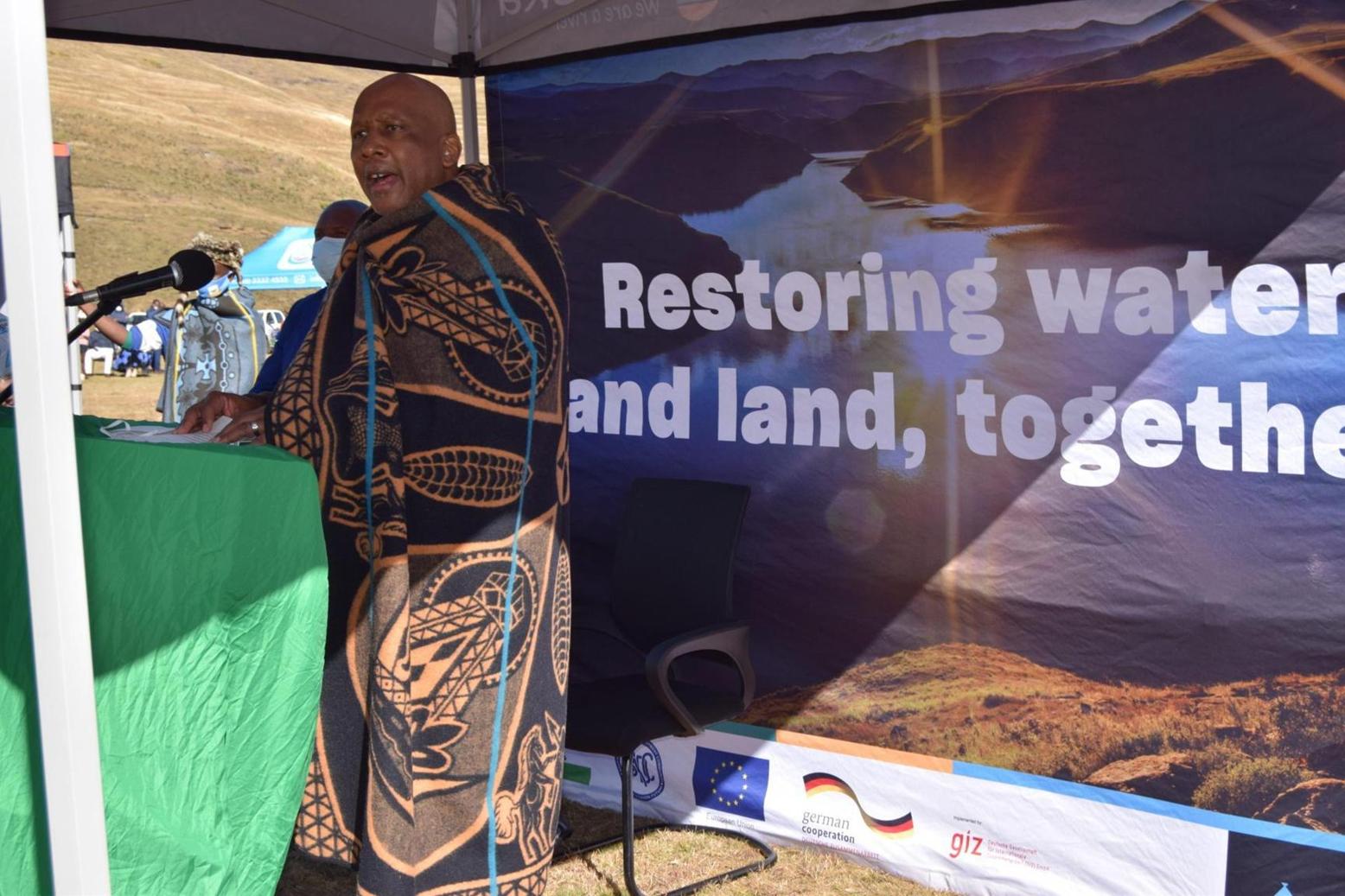Africa-Press – Lesotho. Overgrazing and lack of sustainable rangeland management practices have resulted in widespread degradation of previously pristine water and land resources, threatening the catchment’s source.
In the process the Basotho traditional pastoral way of life and their livelihoods have been ruined, the Public Relations Officer of Integrated Catchment Management project (ICM), Mphonyane Moshoeshoe, has said this.
She said the land degradation has seen more Basotho experiencing poverty and increased food insecurity, adding while Lesotho’s mountain landscape enables the country to be a prime water catchment, it also makes the country more vulnerable to soil erosion and the impact of a changing climate.
Moshoeshoe said Lesotho is experiencing an increased frequency and intensity of extreme weather events, including prolonged droughts, floods, and shifting rainfall and snowfall patterns.
“Past livelihood coping mechanisms are becoming increasingly inadequate to cope with the new situation.
“Despite two thirds of the population being dependent on the rural economy, agricultural productivity has been steadily declining resulting in rising food insecurity and a low readiness to improve resilience,” she noted.
The Integrated Catchment Management project is an initiative of the government of Lesotho which is jointly funded by the European Union (EU), the German Federal Ministry for Economic Cooperation and Development and will be spearheaded by ReNOKA, which means we are a river.
The project seeks to promote sustainable management of land, water and natural resources through application of a climate- resilient integrated management approach.
It also envisions integrated planning for the management of land, water, and natural resources in the catchment areas of Lesotho to improve economic development and livelihoods. ReNOKA is a national programme and citizen movement for the restoration of land and water in Lesotho and the Orange-Senqu basin.
Moshoeshoe said support for ReNOKA is provided through a partnership between the Government of Lesotho, the European Union (EU) Delegation to the Kingdom of Lesotho and the German Federal Ministry for Economic Cooperation and Development (BMZ).
“The EU provides €27.5 million (about M600 million) financial contribution through the 11th EDF with Lesotho, while BMZ provides €6 million contribution through its Transboundary Water Management Programme in the SADC Region.
“The Government of Lesotho provides LSL80 million in parallel financing. The EU and BMZ contributions are implemented through a technical assistance project,” she said.
During the launch of the project on Friday at Ha Koporale in Thaba-Tseka district, King Letsie III noted that if Lesotho does not preserve and protect its wetlands and related ecosystems, it will lose its livelihoods and affect those of neighbouring countries.
He said water is the most valuable resource that Lesotho has and can offer other countries, adding Lesotho entered the water treaty with South Africa more than 30 years ago. Lesotho entered in water treaty with South African in 1986 through the Lesotho Highlands Water Project.
Through the project, Lesotho transfers water from its highlands to the Gauteng industrial hub of South Africa via the Vaal River System while simultaneously generating hydro-electricity for itself.
King Letsie III noted that the agreement contributes hugely to the country’s economy. “Through the project, Lesotho is able to generate electricity for its people even though it does not cover the country’s entire power needs.
“The success and continuation of the project depends on availability of running water in Lesotho’s rivers into dams.
This makes it imperative for the country to embark on an integrated approach that encompasses different stakeholders in the protection of the country’s wetlands and related ecosystems.
“The approach will help the country achieve sustainable and efficient management of water resources and natural habitats and consequently bring multiple benefits to the communities and the country at large,” he said.
He said it is everyone’s responsibility to look after grazing land, wetlands, water sources and the environment in general so that Lesotho can continue delivering water to South Africa and get royalties in return.
“This Integrated Catchment Management project is very important to Lesotho as it will ensure that our wetlands, range lands, graze lands and other natural resources are rehabilitated and protected.
“It everyone’s responsibility to look after water sources not only to ensure that water projects that Lesotho has succeed for the benefit of Basotho and neighbouring countries but also to ensure that livelihoods of Basotho that survive on farming are restored and improved as well,” he noted.
Chief Seeiso Bereng Seeiso also graced the launch with his presence. In his remarks, he noted that it is very important that herd boys, local communities and community leaders are involved in environment protection and rehabilitation projects.
Chief Seeiso noted that the engagement of local communities will ensure that the project succeeds as surrounding communities, especially herd boys, will understand the importance of land rehabilitation and protection and, as a result, they would willingly play their part.
He said he wants to ensure that herd boys are fully capacitated on livestock production, protection, land and its rehabilitation. He said if herd boys are well capacitated to look after their animals and the environment, they will be in a better position to protect them and make informed decisions when it comes to animal health, land and natural resources’ rehabilitation.
Prime Minister Moeketsi Majoro said for many years, Basotho have been watching from the sidelines while their environment and natural resources are depleting.
It is about time Basotho and the country at large take matters in their own hands and rehabilitate and protect their natural resources and the environment, he said.
He said if the country changes some of its actions, which mostly affect the environment, the country will continue to enjoy the benefits that come with healthy range lands and wet lands.
“Range lands allow us to survive through selling our animals (livestock), while wet lands and water sources allow us to survive through farming.
“All these are only possible in the presence of water.
If we change the way we do things that have negative impacts on our environment, degradation of natural resources and environment will be a thing of the past,” he said.
For More News And Analysis About Lesotho Follow Africa-Press






